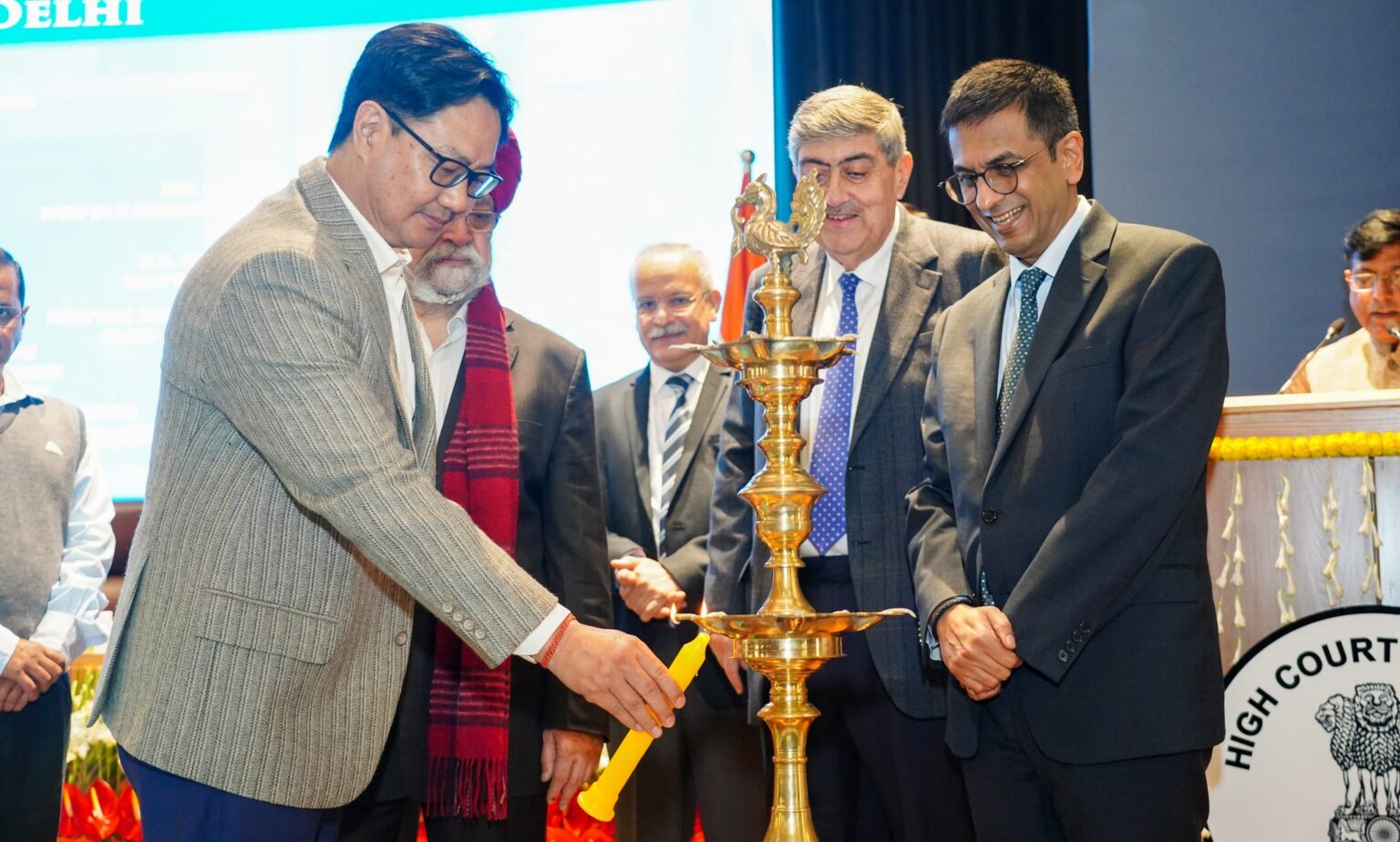New Delhi, Jan 16.
A huge controversy has broken out after it came to light that Law Minister Kiren Rijiju had written to the Chief Justice of India seeking a government say over the process of appointments to the Supreme Court and the High Courts, something that the court has already struck down in the NJAC case.
The minister claimed in a war of words with Delhi Chief Minister Arvind Kejriwal on twitter that he was “only following up” the court’s ruling suggesting a change in the memorandum of procedure on appointing judges to the higher courts while striking down the government’s National Judicial Appointments Commission (NJAC).
Kejriwal had said that any such move would be “extremely dangerous”. “There should be absolutely no government interference in judicial appointments.” Replying to him, Rijiju said: “The contents in the letter to the honourable CJI are exactly in conformity with the observations and directions of the Supreme Court Constitution bench.
“Convenient politics is not advisable. The Constitution of India is supreme and nobody is above it.”
A top court bench had in 2015 struck down the proposed NJAC on the ground that it was violative of the basic structure of the Constitution, which ensures an independent judiciary by insulating the process of appointing judges by giving the executive a minimal say over the process, and violates the theory of separation of powers.
The NJAC had proposed that the panel that would make these appointments include, apart from the top three collegium members, (including the CJI), the Law Minister and two other eminent persons to be appointed by the government.
Any appointment under that process could be stalled by any two members objecting to a name, giving an edge of sorts to the non-judicial persons to stall any appointment. The government now wants this provision back via the memorandum of procedure. As of now, there is no panel other than the collegium deciding appointments.
Though the top court in its NJAC ruling had suggested changes in the process to make it more transparent and robust, such as creating a secretariat which would collate information about possible candidates etc, this exercise never took off.
The court had then held out the promise of having more open court hearings on the issue and fine-tuning the process. Subsequent CJIs though gave up the exercise given the sheer magnitude of holding public consultations and fine tuning the system.
In the aftermath of the ruling, the government tried to incorporate a national security clause in the MOP to give it a final say over the process of appointing judges. That was stymied by the court.
The majority government at the Centre has since taking over, however, refused to abide by the salutary convention of appointing names recommended a second time by the collegium.
Under the existing collegium system, appointments are initiated and cleared by the collegium. The government can reject such names once on the ground that the background or security checks were adverse, but would have to clear the names if they are recommended a second time.
BJP leader Dr Subramanian Swamy reminded the government that appointing SC judges is the prerogative of the CJI and his constituted committee. Article 217 makes it clear that the union government through the President can only decide on High Court judges, he said.
“… taking on the SC for nothing more than seeking the right to appoint loyal dummies as judges…? Is this governance…?”

